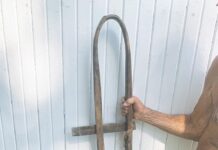New farmers packed the auditorium. A panel of five seasoned farmers was seated on the front stage. They shared how they got started farming, a bit about their current operations, and then opened the floor to questions from the audience.
“How did you find and finance farmland?”
“What profit margins can I expect the first few years?”
“Equipment: buy new or used?”
One young farmer stood and addressed the panel, “I put a lot of effort and money into taking care of rented land. I’d rather invest in my own land, but land prices are high. Should I continue to rent or buy my own land?”
Another new farmer explained he wants to grow his operation, but a mortgage and daily operating costs leave no cash to invest in growth. He asked, “How did you grow your operation without taking on a ton of debt?”
The fear of farm finances affects all new farmers. When it comes to bookkeeping, even those of us with a good understanding of business financials hold our breath until we see black.
Most farmers frown at the thought of building a budget, but a budget is the farmer’s best friend. Budgeting takes the fear out of farm finances, and empowers new farmers to create the farm of their dreams.
Budgeting takes the fear out of farm finances
A budget outlines anticipated expenses and revenue during a period of time. It is the foundation of farm business financials. A budget provides snapshots your farm’s current financial position and its future position.
I budget in 12 month periods. At the end of the year, I compare my projections with what actually happened. I use the information to predict capital requirements for the coming 12 months. I set growth goals and create a fiscal plan to achieve those goals in my budget.
Enterprise budgets
I create separate budgets for each enterprise, and then combine them to produce a whole farm budget. This allows me to analyze each area’s profitability and how it contributes to my bottom line.
My whole farm budget it composed of three enterprise budgets: livestock, gamebirds and forage. I calculate costs and revenue associated with each enterprise. If a single enterprise isn’t pulling its weight, I find a way to boost revenue in that area, or discontinue that enterprise and focus my time and energy on an area that produces better profits.
Allowing my budget to guide my business decisions inspired me to discontinue two unprofitable enterprises and develop two new profitable enterprises. I’ve sought different marketing channels and pursued new sales opportunities to boost revenue. In short, budgeting allows me to proactively manage my farm finances.
Cash flow budgets
Cash flow is critical to keep your business running. Cash flow budgets project future cash in-flows and out-flows over a period of time.
A cash flow budget helps you keep a finger on the pulse of your farm business. When an unanticipated expense puts you in the red, your budget reveals the exact amount of revenue you need to get back in the black.
Cash flow budgets allow farmers to make critical purchasing decisions with confidence. Considering an equipment upgrade? Project cash in-flow from increased production and cash out-flow from equipment payment. You’ll learn how much money the equipment will add to your operation, and whether it will generate sufficient cash to warrant its purchase.
Cash flow budgets are extremely helpful for farm businesses with seasonal sales. Hay sellers, pick-your-own operations and farmers’ market vendors may discover opportunities to fill budget gaps in with complimentary crops or enterprises.
Budget tools and templates
The Agricultural Marketing Resource Center business workbench offers budgeting tools, including enterprise and cash flow budget templates.











